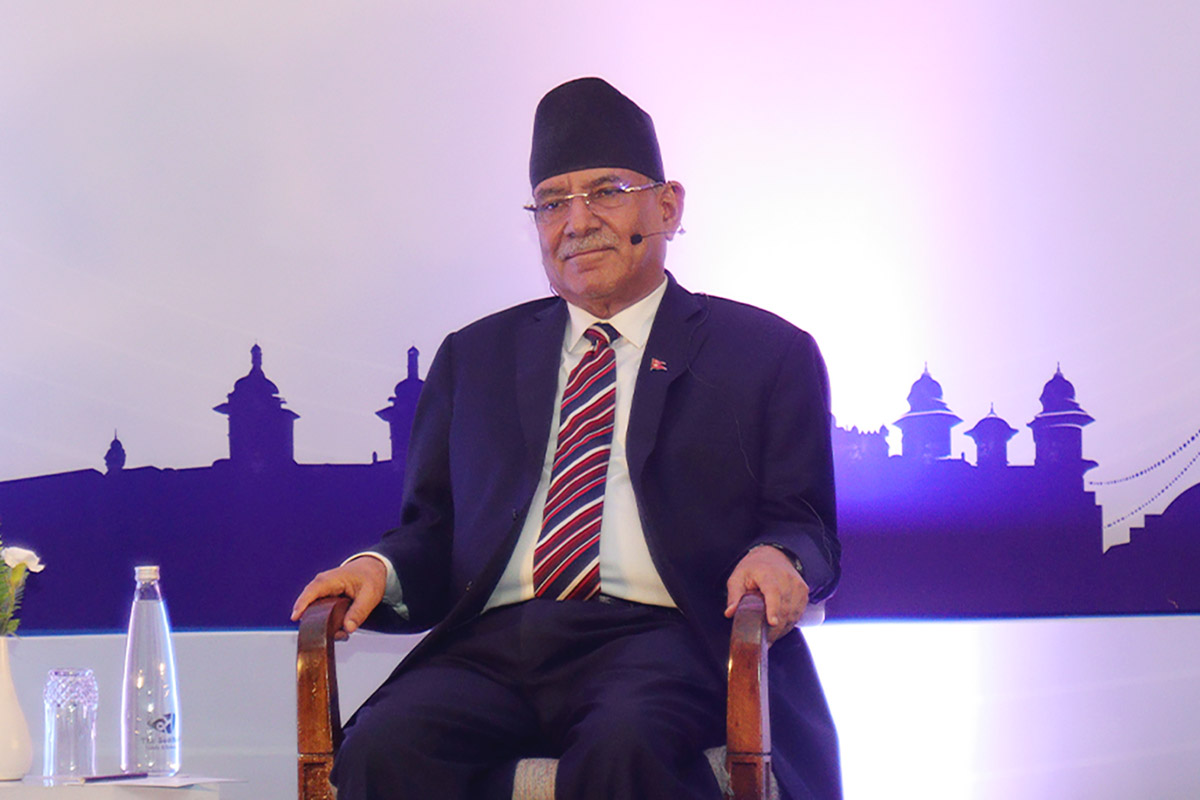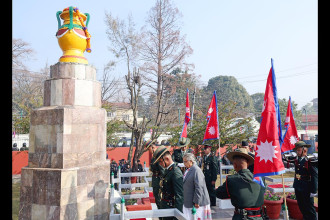KATHMANDU: Former President Bidya Devi Bhandari has said Nepal stands at a critical juncture in its economic development following the establishment of the federal democratic republic.
Speaking at the Rising Nepal Summit 2025, organised by Nepalkhabar under the theme ‘Mission 2084: Double Investment, Double Employment’, Bhandari urged political parties to unite in fostering a just, inclusive and production-driven economy.
“We have already advanced into an important phase of economic development,” she said. “Now, our focus should be on sustainable investment, proper mobilisation of our agricultural land, water resources and minerals.”
She called on the opposition to offer constructive support and on the government to review and refine existing policies. Bhandari also highlighted the need to revive struggling industries, invest in indigenous skills and cultivate a trustworthy business climate.
Long-term economic planning and deeper cooperation with neighbours such as India and China, she added, were essential for sustained progress.
On the occasion, Federation of Nepalese Chambers of Commerce and Industry (FNCCI) President Chandra Prasad Dhakal echoed these points, stressing that job creation, revenue growth and infrastructure development would determine Nepal’s future. “The political parties that want to lead in the 2084 elections must prioritise public service-oriented agendas,” he said, reiterating the summit’s core mission: double investment and double employment.
Likewise, CPN (Maoist Centre) Chairman and former Prime Minister Pushpa Kamal Dahal offered an assessment of past reforms, questioning why Nepal’s shift to a liberal economy had failed to deliver anticipated development. He pointed to a steep decline in agriculture and industrial output and stated that Nepal now imports food grains despite once being self-sufficient.

Dahal called for a thorough policy review, renewed national unity and a return to principles of self-reliance and the protection of national interest.
Dr Yubaraj Khatiwada, economic adviser to the prime minister, acknowledged worrying economic indicators, including a one-third fall in private-sector investment over the past three years. While forecasting growth of between 5.5% and 6%, he admitted that capital mobilisation remained weak, particularly through domestic financial channels.
Tourism also featured prominently. Ashlesha Karki, deputy managing director of Mechi Crowne Plaza, described the sector as a cornerstone of Nepal’s economy, citing a 543-billion-rupee investment from 2023 to 2024. She urged the government to digitise business processes, extend infrastructure development beyond Kathmandu and target luxury and high-spending tourists.




-1769766216.jpeg)
-1769765242.jpg)
-1769754921.jpeg)